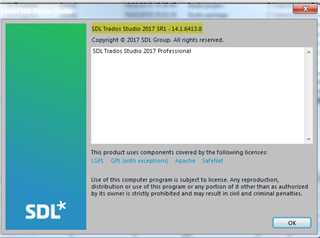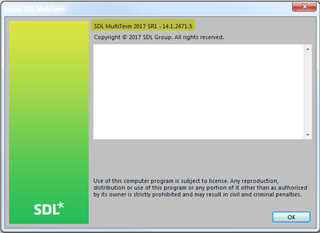I have an agency that gives me Trados packages (wszx and sdlppx) converted from Idiom WorldServer packages (xlz). I use tow computers running Windows 7 and 10, and two Japanese input editors (Microsoft IME and ATOK 2013). I have been having mysterial issues as I describe below.
With Win7 machine, when predictive typing (type the first part of a word and M-IME or ATOK suggests a whole word) kicks in, an error occurs. With Microsoft IME, I can use it as long as I ignore the "prediction" and keep typing till the end of a word. With ATOK, an error happens and I need to click OK to continue.
Either case, once the error occurs, kitting the End key takes the cursor to one character before the end of the line, not at the very end of the line.
With Win10 machine, I can type when I first use a package file. However, as soon as an error occurs, I can do nothing with Trados. The only thing I can do is to use TaskManager to end Trados. Once this happens, after I re-launch Trados, as soon as I hit any key to type, the error occurs and I need to end Trados using TaskManager.
The error message is: Attempted to read or write to protected memory. This is often an indication that other memory is corrupt.
So, in short, I can work with Win7 + Microsoft IME with some inconvenience. Nothing else works.
My Trados works fine with any other file. The only problematic files are those converted from Idiom.
Does anyone know a solution?
Thank you.
Yuki

 Translate
Translate


